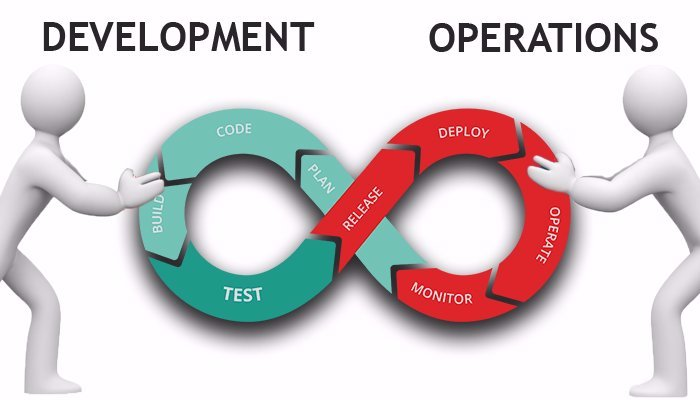Posted On:
What’s The Role of DevOps In Product Development?
Internet is taking giant strides, since its discovery. Gone are the days when access to the internet was through desktop computers. Over the last 10 years, the trend has been shifted to ‘mobile’. Either it is social media platforms or business sites, everything is revolving around mobile apps. Technology vendors and developers have realized the importance of users using smartphones and that is why they continue to develop products that are relevant to the market.
In the initial years of this transition, the software industry focused on meeting market demands. While businesses focused on creating a market presence and they ignored focussing on product development costs, security, maintainability, code quality, and other important factors. This is where DevOps comes into the picture!
In this blog, we will be discussing the role of DevOps approach in Product Development, its benefits, and best practices.
What is DevOps?
DevOps stemmed from agile methodology in 2001, it is a set of software development practices that combines software development (Dev) and information technology operations (Ops) to shorten the systems development life cycle while delivering features, fixes, and updates frequently in close alignment with an enterprise's business objectives. DevOps focuses on collaboration between product managers, developers, and the operations staff. Since Agile and continuous workflow has taken over the world of software development, the waterfall model is out of the game. It is the meeting point of development, quality and operation.
Why DevOps?
The typical software approach before DevOps lacked regulation and coordination between various teams, which subsequently led to additional development time and customer satisfaction at a large scale. The conventional approach was also somewhat time-consuming, laborious and often a delayed one. What is why adoption of DevOps is high and popular.
Advantages of DevOps adoption in Enterprises:
DevOps has brought the development and operations team on the same page. The goal of the team is broken down to the specific members. In this process, responsibilities are distributed so that everyone in the team has a clear understanding of their roles and application performance status. This, in turn, also enhances their interpersonal skills and work performance.
DevOps methodology addresses the deployment hurdles of various operating systems and multiple devices by encompassing the agile development methodology to rapidly deploy functionalities necessary for a successful product launch.
Some of the key benefits of using DevOps include:
Enhanced Customer Experience
Faster Resolution of Bug Fixes
More Time for Innovation
Increased Efficiency
Higher Employee Engagement
Faster Delivery of the Product
Continuous Software Delivery
More Stable Environment for Easy Deployments
Role of DevOps in PDLC
Today, DevOps is one of the most popular software development approaches. Almost every leading company like Facebook, Netflix, Amazon, etc. has leveraged DevOps for development purposes. For the sake of better performance, business success, and competitiveness, you need to take the first step and hire a DevOps Engineer. Let’s witness what DevOps is all about and how it helps in facilitating product delivery.
DevOps isn’t merely a set of actions, it’s more of a culture or even a philosophy that enables cross-functional team communication. When it comes to delivering mind-blowing products, it was concluded that the traditional DevOps mindset doesn’t foster the best product possible. And while the DevOps approach is a major step toward a more effective and collaborative process, there's still room to innovate when it comes to product development starting with continuous delivery and cross-functional teams.
With the arrival of DevOps, the software product industry has seen a major push to integrate two practices to deliver products with more efficient systems and processes. But while this association between traditionally separate roles i.e; Development and Operation has prompted outstanding progress on the development front. But there’s still more to come. The DevOps methodology focuses on developing products better following the agile process. Similar to how DevOps introduced agile development into operations and improved relationships across teams, play a vital role in delivering the best possible product. At the base, the secret to designing successful products is to take a user-centric approach, which is well integrated with product and business guidelines.
Practically speaking, just agile development methodology is not enough, to create a win-win situation, a developer needs DevOps. It combines great automated tooling with a “continuous everything” practice. DevOps aids in continuous product delivery that enables clients to reduce the time-to-market and seize the new market opportunities simultaneously.
Adopting DevOps in the software industry can be a turning point for many enterprises. As said before, DevOps ensures that all different teams become more productive in terms of execution. However, adopting DevOps is not easy, it requires a lot of technical and business decisions. It’s no surprise that DevOps implementation can help you reap benefits and help your organization in the right way.
DevOps is integral to modern app development and delivery. However, leaders in the development and IT operations should address the unique collaboration, test the release and analytics needs of the DevOps environment. The key principle in DevOps is continuous delivery, which means deploying the software (in this case a product) and the environment on which it runs, automatically and on-demand, during any stage of the product development life cycle.
Rules of adopting DevOps:
Adopting DevOps in your organization needs some considerations. There are a few guidelines that you can use to properly implement DevOps in your team:
RULE #1 - CONTINUOUS INTEGRATION AND CONTINUOUS DELIVERY
The development team must make sure that the traceability of all the development assets including code, configurations, scripts, documents, text files, etc. is done. Continuous Integration must be practiced which ensures that the new code delivered by one team is seamlessly integrated with the code delivered by the other team. As Android and iOS are dominating on the mobile front so developers must also maintain a separate build for each of the variants and platforms intended. Developers utilize IDE to manually generating builds. As the number of build increase, developers can use scripts to generate automated builds. Developers must manage those scripts, to ensure the timely delivery.
Rule #2 - TESTING AND MONITORING
Testing is done on simulators rather than actual physical devices, which is a completely manual process. Given the number of platforms and form factors, it is not possible to do manual testing. So the only option left to test your product is to use automated testing tools. During the time of development, production issues will appear. The entire ecosystem must be based on virtual instances, to solve the discrepancies. As this also aids in cost-saving. Also, there can be different factors associated with failure such as network, memory, power, etc. So it’s very vital for the developers to ensure continuous monitoring by the third party.
Rule #3 - QUALITY AND DELIVERY
Continuous deployment is the next step after continuous delivery. In continuous deployment, each change that has been approved by continuous testing gets deployed to the production environment automatically. The developer must ensure to deliver high-quality software and to continuously listen and learn from users, providing them features according to user requirements.
Takeaway:
DevOps has attained a momentous grip in the technology world. Plus, this approach offers robust and user-friendly products. Thus, companies want to take advantage of the IT market by providing users with products that make enterprise deployment smoother using DevOps. DevOps approach also allows organizations to carry out product refinement and updates quickly. Last but not least, DevOps is a general approach that works for all components as well as different kinds of products.





Comments